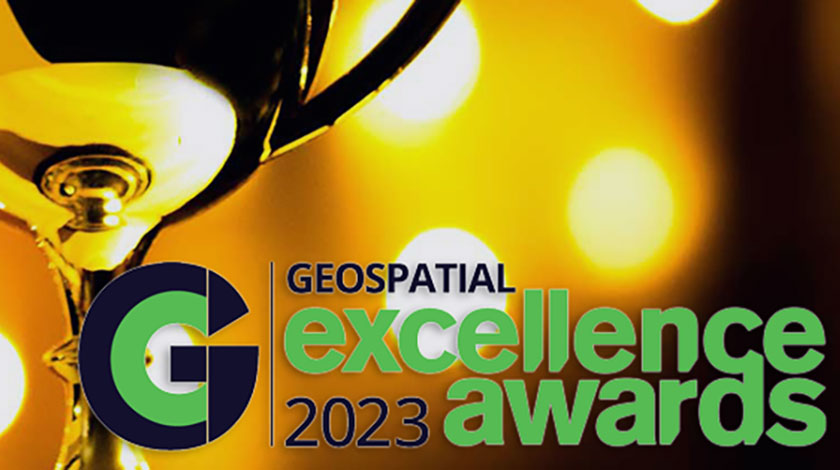Environment and Sustainability Award:
The Department of Natural Resources and Environment for their Early Fire Detection and Notification System
The Tasmanian Wilderness World Heritage Area is one of the largest conservation areas in Australia, covering 25 percent of Tasmania, and home to vast areas of threatened endemic vegetation communities and culturally significant aboriginal heritage sites. The Tasmania Parks and Wildlife Service (PWS) has responsibility for fire management within the area.
The Early Fire Detection and Notification System Project has developed a tool, using spatial technologies and knowledge, to support PWS to make more timely decisions and limit the impact of bushfires on some of the world’s most valuable environmental and heritage assets, preserving them for future generations to come. The judges said the ability to deal with wildfires closer to origin will reduce the impact of these wildfires and help preserve the biodiversity in Tasmania. The approach taken looks repeatable across the rest of Australia and the world too.
Geospatial Enablement Award:
Veris and the City of Hobart for the Hobart Rivulet Digital Twin project.
This groundbreaking project transformed asset management for a key stormwater facility at the city’s core. Leveraging data capture, 3D visualization, and GIS analysis, it surmounted challenging access conditions to establish a comprehensive digital twin platform. The project’s inventive fusion of 2D and 3D solutions, QR code-based asset identification, and real-time data updates demonstrated the practical application of spatial techniques in a non-spatial context.
This initiative continues to yield lasting advantages, such as improved defect monitoring, heightened safety measures, and robust modeling capabilities, making it a highly deserving contender for recognition. The judges applauded it as a stellar illustration of geospatial technology integration, substantially enhancing business efficiency and outcomes.
Technical Excellence Award:
Veris for their North-West Coast Underwater Bridge Inspections project.
Veris Australia performed underwater bridge inspections for the Department of State Growth in North-West Tasmania. This was to assess any changes in the riverbed by capturing high resolution point clouds of riverbeds and comparing to previous datasets. Veris utilised the latest remote boat technology, together with several sensors including multibeam sonar, inertial navigation systems, and 3D modelling. This allowed the data to be collected in a much safer manner than the previously used dive inspections.
The result was delivered in an online 3D experience, allowing for measurement and markup of defects, and sharing of data with other stakeholders. The judges said it was a great case study of constantly looking at the problem to find the next solution to gain more insights for the client.
Undergraduate Student Award:
Jordan Rattle
Jordan, a dedicated student at the University of Tasmania, has consistently excelled in all geospatial sciences subjects. His unwavering commitment to excellence earned him a 2023 Summer Research Scholarship. Under this scholarship, Jordan undertook a project focused on unraveling the spatial patterns of road accidents in Tasmania. Leveraging spatial autocorrelation checks and hot spot analysis via statistical metrics, he delved into the density and distribution of such accidents.
Jordan’s findings demonstrated the valuable insights that this analysis can offer for road improvement planning. The judges commended the practical relevance of his work, highlighting its broader applicability to the wider community.
Professional of the Year Award:
Josh Hawkins
The prestigious Professional of the Year award goes to Josh Hawkins for his exemplary contributions as a Spatial Information Specialist at Hydro Tasmania. Josh has been the lead working with the distribution team on the Bass Strait Islands, creating solutions with the end user in mind. Currently, he’s working with Hydro Tasmania engineers on mapping the end-to-end electricity supply inputs, which will be a game changer in how the organisation plans and runs the network.
What makes Josh truly exceptional is his hands-on approach; he’s unafraid to engage in meter reading rounds in rural settings and even ventured into the challenging conditions of the Tassie West Coast to assist with distribution network upgrades while field-testing his GIS solutions. His commitment to honesty, integrity, and customer-centricity, along with his ability to collaborate effectively, has left a profound impact. The judges were unanimous in recognizing Josh’s immense value to his employer and his exemplary role in making a significant difference in this critical field.


0 Comments